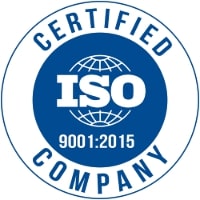EPR Registration for Plastic Waste Management (PWM)
Looking for a one-stop solution for EPR Registration for Plastic Waste? Look no further! EVTL India, your trusted EPR Registration consultant for Plastic Waste in India, offers complete assistance in application filing, documentation, responsibilities guidance up to grant of EPR licence. Enjoy 24/7 free consultation with our top experts for all your queries. Think Certification Think EVTL India.

EPR Registration for Plastic Waste Management (PWM) - Overview
Plastics have become an essential part of modern life, widely used in packaging, consumer goods, and various industries. However, their non-biodegradable nature presents significant environmental challenges. In India alone, approximately 5.6 million tons of plastic waste is generated each year. To address this growing issue, the Central Pollution Control Board (CPCB), Indian government introduced the concept of Extended Producer Responsibility (EPR) through the Plastic Waste Management Rules, 2016. EPR holds producers, importers, and brand owners accountable for managing the plastic waste generated from their products. This responsibility includes adopting eco-friendly practices such as recycling, reusing materials, and ensuring proper end-of-life waste management.
Understanding Extended Producer Responsibility (EPR)
Extended Producer Responsibility (EPR) assigns accountability to manufacturers, importers, and businesses for managing the waste generated throughout the entire life cycle of their products, specifically focusing on plastic packaging. This framework ensures that stakeholders are responsible not only for producing goods but also for collecting, recycling, and properly disposing of them once they are either consumed or reach the end of their useful life.
Under the EPR Registration for Plastic Waste Management (PWM), PIBOs (Producers, Importers, Brand Owners) are obligated to handle their plastic packaging waste in an environmentally sustainable manner. This includes implementing waste management strategies such as reprocessing, co-processing, converting plastic to oil, road construction, and waste-to-energy technologies. These approaches aim to address plastic waste issues effectively and reduce environmental impact.
Plastic Waste Management Rules, 2016 and Amendments
The Plastic Waste Management Rules, 2016, along with subsequent amendments—particularly the February 2022 Amendment—have established more precise guidelines for implementing Extended Producer Responsibility (EPR) in plastic packaging. These amendments clearly define the roles and responsibilities of Producers, Importers, and Brand Owners (PIBOs), while also outlining mechanisms to monitor the collection and take-back of plastic waste. To ensure compliance, the rules introduced several enforcement tools, including the EPR Portal launched by the Central Pollution Control Board (CPCB) to streamline reporting and accountability.
EPR Portal Overview
The EPR Portal for Plastic Waste Management is a single-window digital facility put in place by the CPCB for simplifying registration, tracking, and reporting by PIBOs and Plastic Waste Processors. The portal shall henceforth enhance the levels of transparency, traceability, and accountability in handling plastic waste under the EPR regime.
As of now, three out of the seven designed to date modules are live:
Key Features of the EPR Portal
The EPR portal is important in monitoring and managing plastic waste through its value chain. It allows for the registration of operations by PIBOs, which, in turn, can issue and exchange EPR certificates while tracking in real-time compliance with the set targets. The key features of the portal are:
Who Needs to Register?
Why is EPR Registration Important?
EPR registration will ensure that PIBOs adhere to India's Plastic Waste Management Rules and work towards a cleaner, sustainable environment. Companies intending to register depict their commitment to reduce the footprint of plastic waste, improve the chain of waste management, and decrease environmental impairment due to plastic pollution. More importantly, any non-compliance invites fines and penalties under the Environmental Compensation Levy.
Types of Plastics and Their Management
Plastics under the rules of PWM is classified into two categories:
Managing these categories effectively holds the key to compliance with the EPR rules. Recycling plastics reduces the demand and production for virgin material, but plastics can be recycled only a few cycles before they lose their quality. Therefore, options such as co-processing and conversion technologies are alternatives upon which much hope is pinned.
Challenges in Plastic Waste Management
Despite the introduction of EPR and technological advances, plastic waste management faces several challenges:
Innovative Disposal Technologies
In addition to recycling, technologies such as incineration, waste-to-energy conversion, and plastic-to-oil processes are emerging as alternative solutions for managing plastic waste. However, incineration is not widely preferred in India due to the emission of toxic gases like dioxins and furans. Instead, the CPCB is promoting safer, innovative technical options to mitigate environmental impacts.
Conclusion
The Extended Producer Responsibility (EPR) regime plays a pivotal role in India's approach to sustainable plastic waste management. By making producers and businesses responsible for the waste their products generate, EPR promotes a circular economy where materials are efficiently reused and recycled. The Central Pollution Control Board’s (CPCB) EPR portal provides a comprehensive framework to enhance transparency, accountability, and compliance throughout the waste management process. Although challenges persist, the effective implementation of EPR has the potential to drastically reduce plastic waste's environmental impact, moving India toward a more sustainable and eco-friendly future.
EVTL India is one of the leading consultants in the field of Extended Producer Responsibility (EPR) registration, assisting companies in navigating the complex regulatory requirements of plastic waste management in India. With extensive expertise in EPR compliance, EVTL India helps producers, importers, and brand owners (PIBOs) obtain EPR registration, ensuring they adhere to India's Plastic Waste Management Rules. Their comprehensive services include guiding entities through the registration process, maintaining compliance, and implementing sustainable waste management strategies, thereby contributing to a cleaner and more eco-friendly environment.























